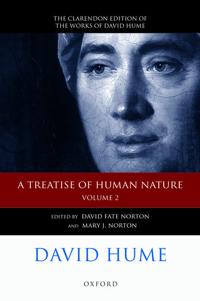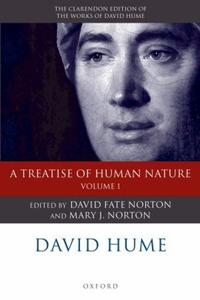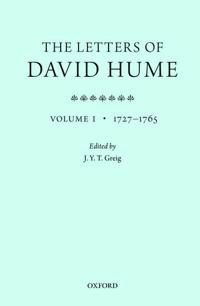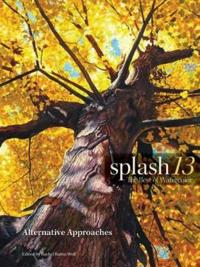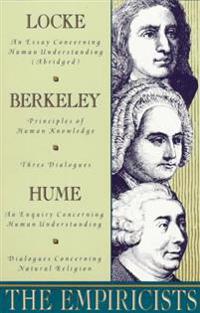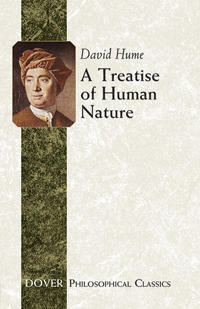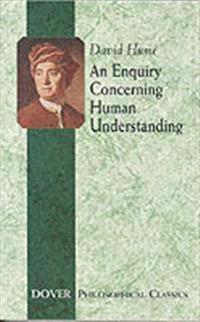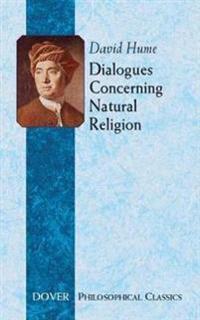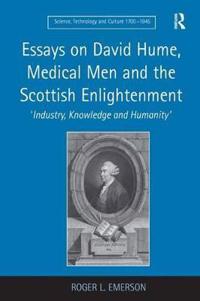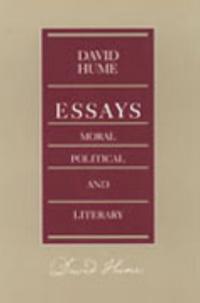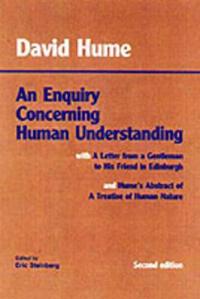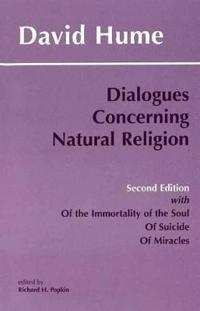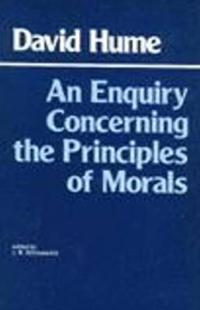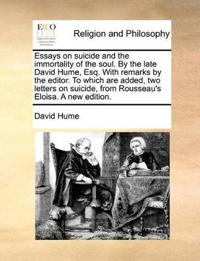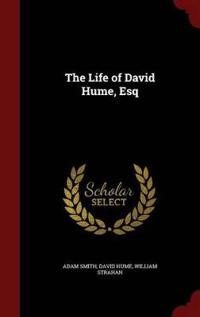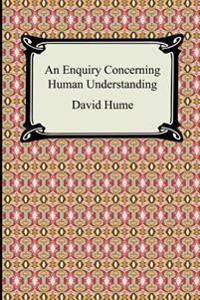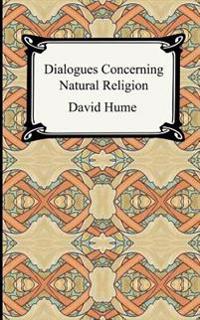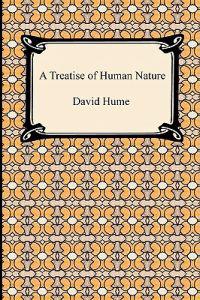David Hume: A Treatise of Human Nature
ISBN: 9780199596348 - UTGIVEN: 2011-02David and Mary Norton present the definitive scholarly edition of one of the greatest philosophical works ever written. This second volume begins with their 'Historical Account' of the Treatise, an account that runs from the beginnings of the work to the period immediately following Hume's death in [...]
David Hume: A Treatise of Human Nature (Häftad)
ISBN: 9780199596973 - UTGIVEN: 201101David and Mary Norton present the definitive scholarly edition of Hume's Treatise, one of the greatest philosophical works ever written. This set comprises the two volumes of texts and editorial material, which are also available for purchase separately.[...]
The Letters of David Hume (Häftad)
ISBN: 9780199693245 - UTGIVEN: 2011-07J. Y. T. Greig's two-volume edition, first published in 1932, presents the correspondence of one of the great men of the 18th century. This first volume contains David Hume's letters from 1727 to 1765. Hume correspondents include such famous thinkers and public figures as Jean-Jacques Rousseau, Adam[...]
David Hume
ISBN: 9780271061559 - UTGIVEN: 2013-11This volume provides a new and nuanced appreciation of David Hume, the historian. Gone for good are the days when one can offhandedly assert, as R. G. Collingwood once did, that Hume "deserted philosophical studies in favour of historical" ones. History and philosophy are commensurate in Hume's thou[...]
David Hume: The Philosopher as Historian (Häftad)
avNicholas Phillipson
ISBN: 9780300181661 - UTGIVEN: 2012-03A giant of the eighteenth-century Enlightenment, David Hume was one of the most important philosophers ever to write in English. He was also a brilliant historian. In this book--a new and revised edition of his 1989 classic--Nicholas Phillipson shows how Hume freed history from religion and politics[...]
Empiricists (Pocket)
avJohn Locke, George Berkeley, David Hume
ISBN: 9780385096225 - UTGIVEN: 1990-05This volume includes the major works of the British Empiricists, philosophers who sought to derive all knowledge from experience. All essays are complete except that of Locke, which Professor Richard Taylor of Brown University has skillfully abridged.[...]
Routledge Philosophy Guidebook To Hume On Religion (Pocket)
avDavid O'Connor
ISBN: 9780415201957 - UTGIVEN: 2001-04-12Part of a series of introductions to classic works in philosophy, this text discusses the life and work of the 18th-century British philosopher David Hume. Providing a background to his work, it focuses on "Dialogues Concerning Natural Religion", and explores Hume's continuiting importance.[...]
A Treatise of Human Nature (Häftad)
avDavid Hume
ISBN: 9780486432502 - UTGIVEN: 200401Hume's comprehensive effort to form an observationally grounded study of human nature employs John Locke's empiric principles to construct a theory of knowledge from which to evaluate metaphysical ideas. A key to modern studies of 18th-century Western philosophy, the "Treatise" considers numerous cl[...]
An Enquiry Concerning Human Understanding (Pocket)
avDavid Hume
ISBN: 9780486434445 - UTGIVEN: 200404Essays on David Hume, Medical Men and the Scottish Enlightenment (Inbunden)
avRoger L. Emerson
ISBN: 9780754666288 - UTGIVEN: 2009-03The Scottish Enlightenment was a period of feverish intellectual and scientific progress, in a country previously considered to be marginal to the European intellectual scene. Yet the enlightenment was not about politeness or civic humanism, but something more basic - the making of a society which c[...]
Essays - Moral, Political and Literary (Häftad)
avDavid Hume
ISBN: 9780865970564 - UTGIVEN: 198701This edition contains the thirty-nine essays included in Essays, Moral, and Literary, that made up Volume I of the 1777 posthumous Essays and Treatises on Several Subjects. It also includes ten essays that were withdrawn or left unpublished by Hume for various reasons. The two most important were de[...]
An Enquiry Concerning Human Understanding (Häftad)
avDavid Hume
ISBN: 9780872202290 - UTGIVEN: 1993-12A landmark of enlightenment though, HUme's An Enquiry Concerning Human understanding is accompanied here by two shorter works that shed light on it: A Letter from a Gentlemen to His Friend in Edinburgh, hume's response to those accusing him of atheism, of advocating extreme scepticism, and of underm[...]
Dialogues Concerning Natural Religion (Häftad)
avDavid Hume
ISBN: 9780872204027 - UTGIVEN: 199809Includes such essays as - "Of Miracles", "Of the Immortality of the Soul" and "Of Suicide".
An Enquiry Concerning the Principles of Morals (Häftad)
avDavid Hume
ISBN: 9780915145454 - UTGIVEN: 198712"A splendid edition. Schneewind's illuminating introduction succinctly situates the Enquiry in its historical context, clarifying its relationship to Calvinism, to Newtonian science, and to earlier moral philosophers, and providing a persuasive account of Hume's ethical naturalism." -- Martha C Nus[...]
An Enquiry Concerning the Principles of Morals. by David Hume, Esq. (häftad)
ISBN: 9781170679715 - UTGIVEN: 2010-06Mirrors to One Another: Emotion and Value in Jane Austen and David Hume (Inbunden)
avE. M. Dadlez
ISBN: 9781405193481 - UTGIVEN: 2009-05-31An Enquiry Concerning Human Understanding (Häftad)
avDavid Hume
ISBN: 9781406813678 - UTGIVEN: 2007-01An Enquiry Concerning Human Understanding (Häftad)
avDavid Hume
ISBN: 9781420926996 - UTGIVEN: 200601

